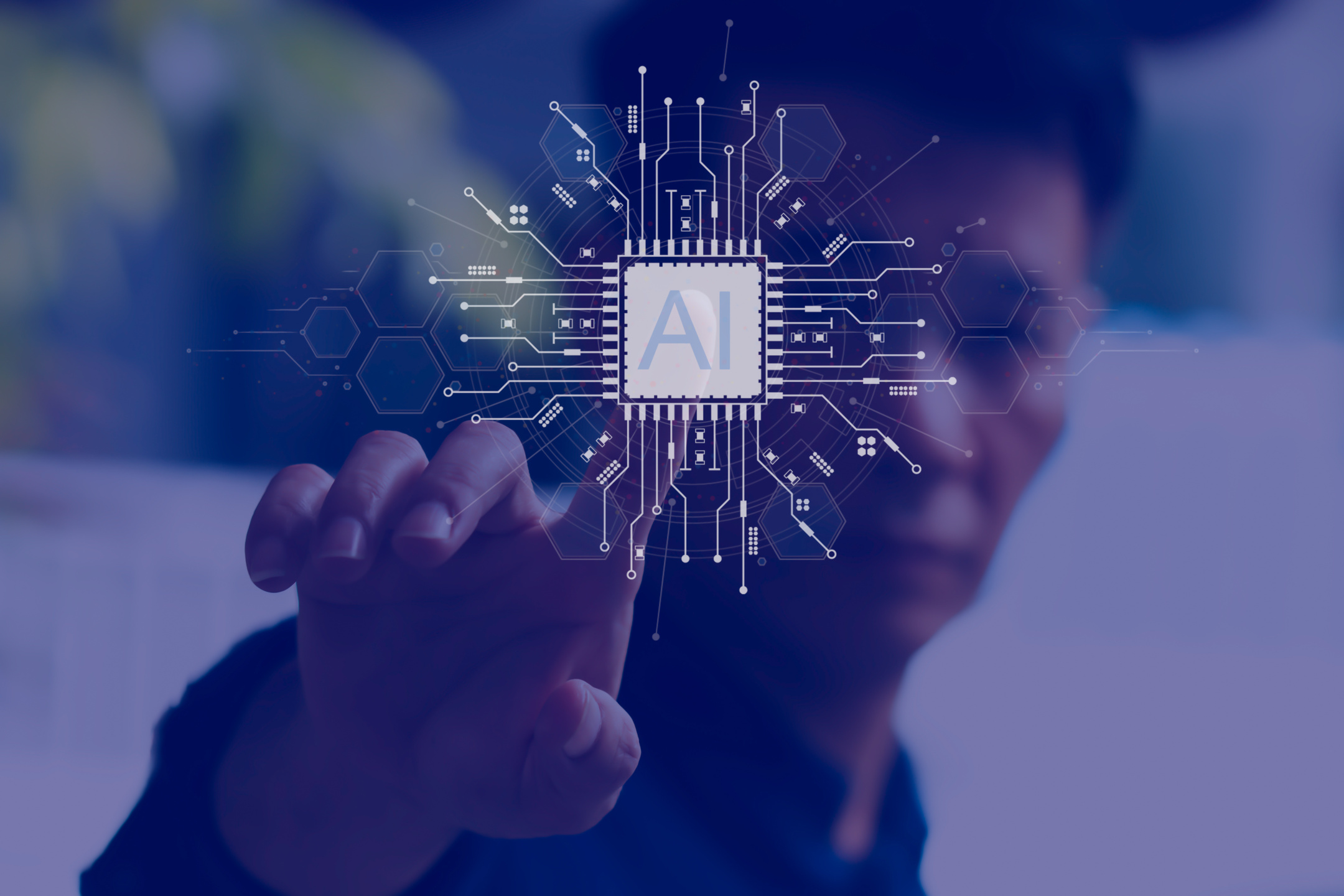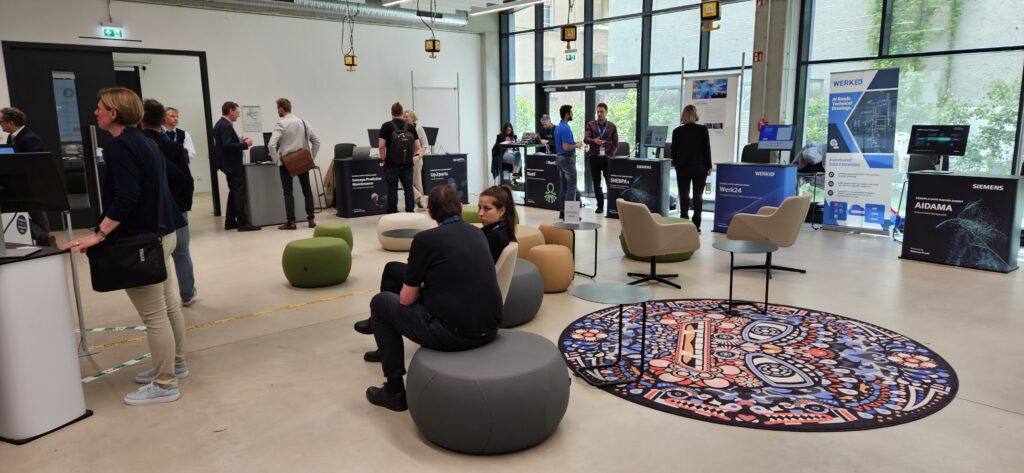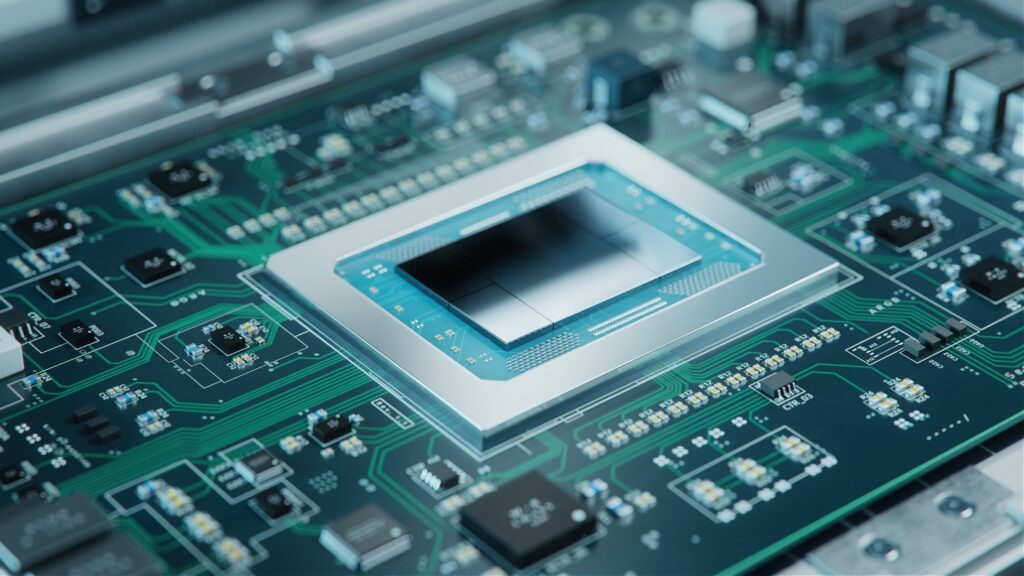An exciting year of artificial intelligence

It is no exaggeration to say that artificial intelligence is one of the fastest developing fields in the world and, looking back at the many advances 2023 has brought, this may be one of the most exciting years so far. Along with great strides in generative AI, I’ve been fortunate enough to work with AI experts in a variety of different fields to learn more about the ways they’re bringing AI into industry and our everyday lives. Below, I’ve taken a look back at some of the highlights from the past year while also looking ahead at what 2024 might bring.
Generative AI takes center stage

Since its release at the end of 2022, ChatGPT has ushered in a new era of AI as it shows off the, in many ways, near human-like abilities of large language models (LLMs) and generative AI as a whole. In a single short year, what would have once seemed like science fiction has suddenly become reality with text, images, audio and more easily generated from simple natural language descriptions with remarkable accuracy. Generative AI is also starting to integrate directly with different software in the form of copilots, assisting users in their day-to-day tasks like an experienced coworker. Check out this 3-part podcast series to find out more about the ways Generative AI is reshaping industrial software.
A trip around the globe
In May, I had the opportunity to travel half-way around the world to beautiful Munich Germany and attend the Siemens sponsored AI with Purpose Summit. At this 2-day event in Bavaria I had the opportunity to attend talks and workshops hosted by AI experts across a wide range of fields, understand what they were working on, and the impact that would have on the future. At the same time, a number of startups were also in attendance, showcasing the impressive breadth of innovation to be found in the world of AI. From the novel to the practical, check out what those startups were up to in this roundup blog.

AI accelerates chip design

If electricity is the beating heart of modern technology, microchips are the brain. With increasing demand for chips to be faster, more efficient and optimized for a wide range of complex tasks, chip designers are turning to AI and machine learning (ML) to assist in the chip design and verification process. Tools such as Solido and Tessent, offered by Siemens EDA, use ML to help drastically speed up the process of validating designs and tracking down problems in finished parts – sometimes by as much as 1,000,000x. While not employing AI itself, tools like Siemens EDA’s Catapult help design next-generation AI accelerators by translating complex AI algorithms into highly optimized chip designs. To find out more about the role of AI and ML in EDA, check out this podcast on AI in the chip verification process.
Connecting supply and demand
In a world that increasingly relies on a connected, global supply chain the importance of understanding when and where a product is coming from as well as other factors, such as environmental impact or potential disruptions, is of particularly high value. Across the breadth of the electronics component value chain, that is exactly what Supplyframe seeks to do with a healthy dose of AI. Understanding something as complex as the global supply chain, even just for a single industry of components, and then using that to gauge buying intent or predict sudden disruptions from that is a daunting task due to the sheer volume of information and variables. AI is, of course, well known for its ability to handle vast quantities of data and extract useful insights from it, something I delved into with Supplyframe in a 3-part podcast series with parts 1, 2 and 3 available here.

Looking back to look forward
Dall-E, and Elevenlabs becoming part of daily life for many. With such rapid development continuing to happen, predicting the ways that AI will continue to evolve in the future is no mean feat but, even so, whatever is coming next is sure to astonish and amaze, just as it has in the past.
Siemens Digital Industries Software helps organizations of all sizes digitally transform using software, hardware and services from the Siemens Xcelerator business platform. Siemens’ software and the comprehensive digital twin enable companies to optimize their design, engineering and manufacturing processes to turn today’s ideas into the sustainable products of the future. From chips to entire systems, from product to process, across all industries. Siemens Digital Industries Software – Accelerating transformation.


